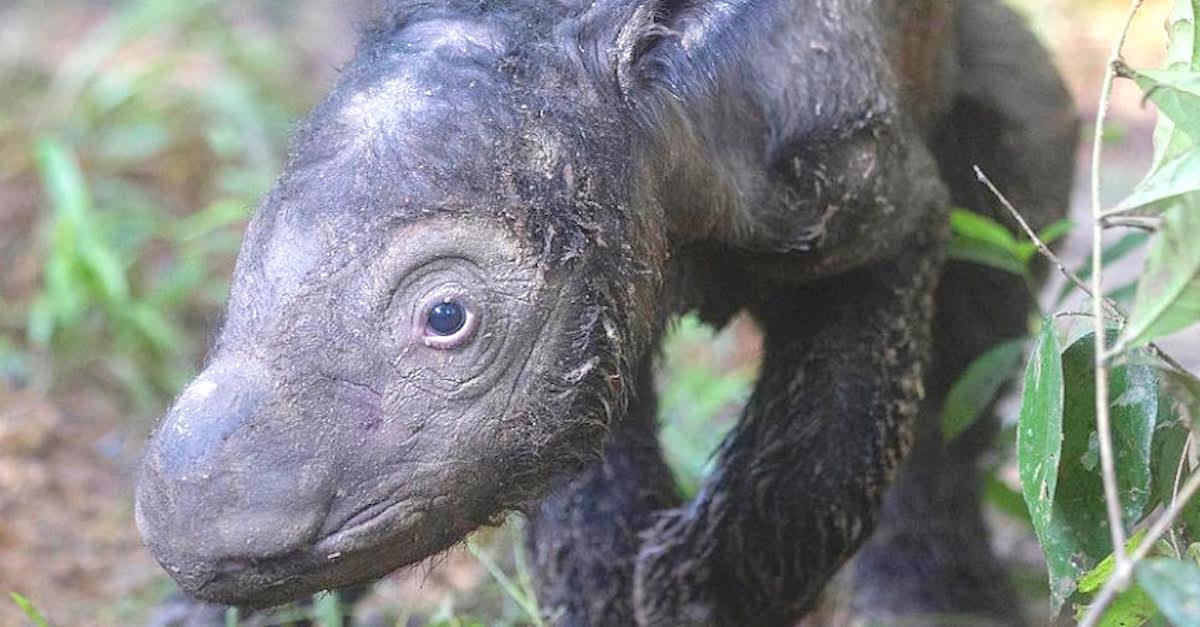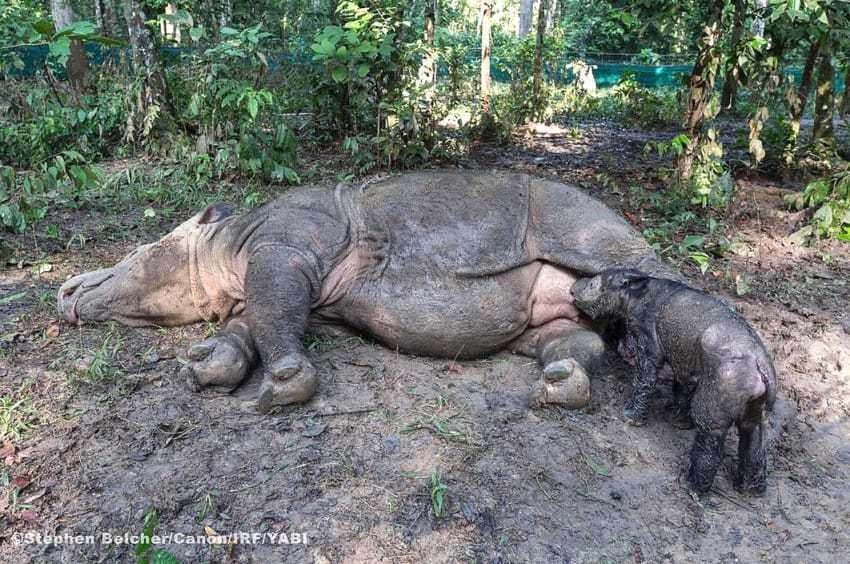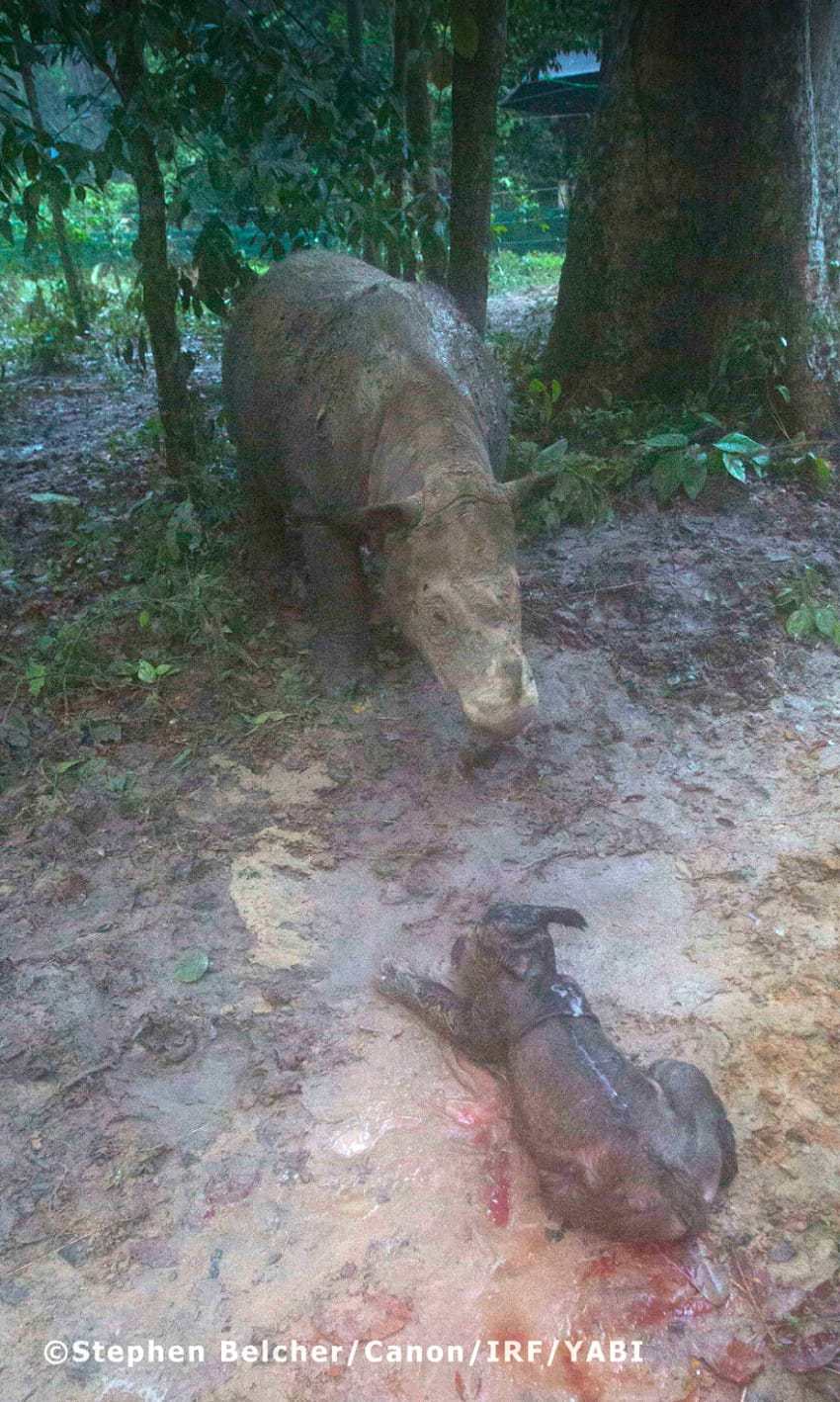Rhinos are not the cute and cuddly animals I usually like to read about.
They’re more like dinosaurs than most animals I’ve seen in a zoo, and their enormous size, thick skin, and large horns make them both scary and awe-inspiring.
But this story about a 14-year-old Sumatran rhino named Ratu and her two babies bring up the value and beauty of all animals on this earth. It also brings up a difficult lesson about sustainability and what it means when a species is about to go extinct.
Sumatran Rhinos are not born in captivity in Indonesia very frequently, but thanks to the support of the Sumatran Rhino Sanctuary, Ratu has given birth to two baby rhinos in the last five years. Andatu, Ratu’s son, was born in 2012, and the birth of another child, a female calf, was recently announced.
These births are significant, because they’re the only two calves that have been born in captivity in Indonesia in 128 years.
[rsnippet id=”4″ name=”DFP/34009881/Article_1″][rsnippet name=”universal-likebox” multi-site=”true”]
Sumatran rhinos are currently endangered. “They were just declared extinct in the wild in Malaysia, and now exist only in Indonesia,” stated International Rhino Foundation (IRF) Executed Director Dr. Susie Ellis.
The births of these two rhinos impacts the future of all Sumatran rhinos. “Ratu’s calf has just increased the population by one percent — while this won’t save the species, it’s one more Sumatran rhino on Earth,” said Ellis.
[rsnippet id=”5″ name=”DFP/34009881/Article_2″]
Currently, less than 100 Sumatran rhinos exist. Their already small population and poaching have threatened the rhinos. Andatu and his little sister are nothing short of a miracle for an otherwise bleak future for the species.
Ratu’s contribution to the sustainability of this group of rhinos is equally important. Having two babies after a 128-year hiatus could mark a turnaround.
Ratu is also a sweet mother. Though rhinos tend to be solitary creatures, Ratu has taken good care of her babies.
“Ratu is a very good mother. Within moments after the birth, she was at the baby’s side, making sure it was all right,” said IRF employee CeCe Sieffert.
[rsnippet id=”6″ name=”DFP/34009881/Article_3″]
IRF and other conservation agencies are working to create protected areas where the rhinos can flourish. Hopefully, more healthy births are in the future for these rhinos.
Check out the birth video below! Please note this video may be graphic for some viewers.




